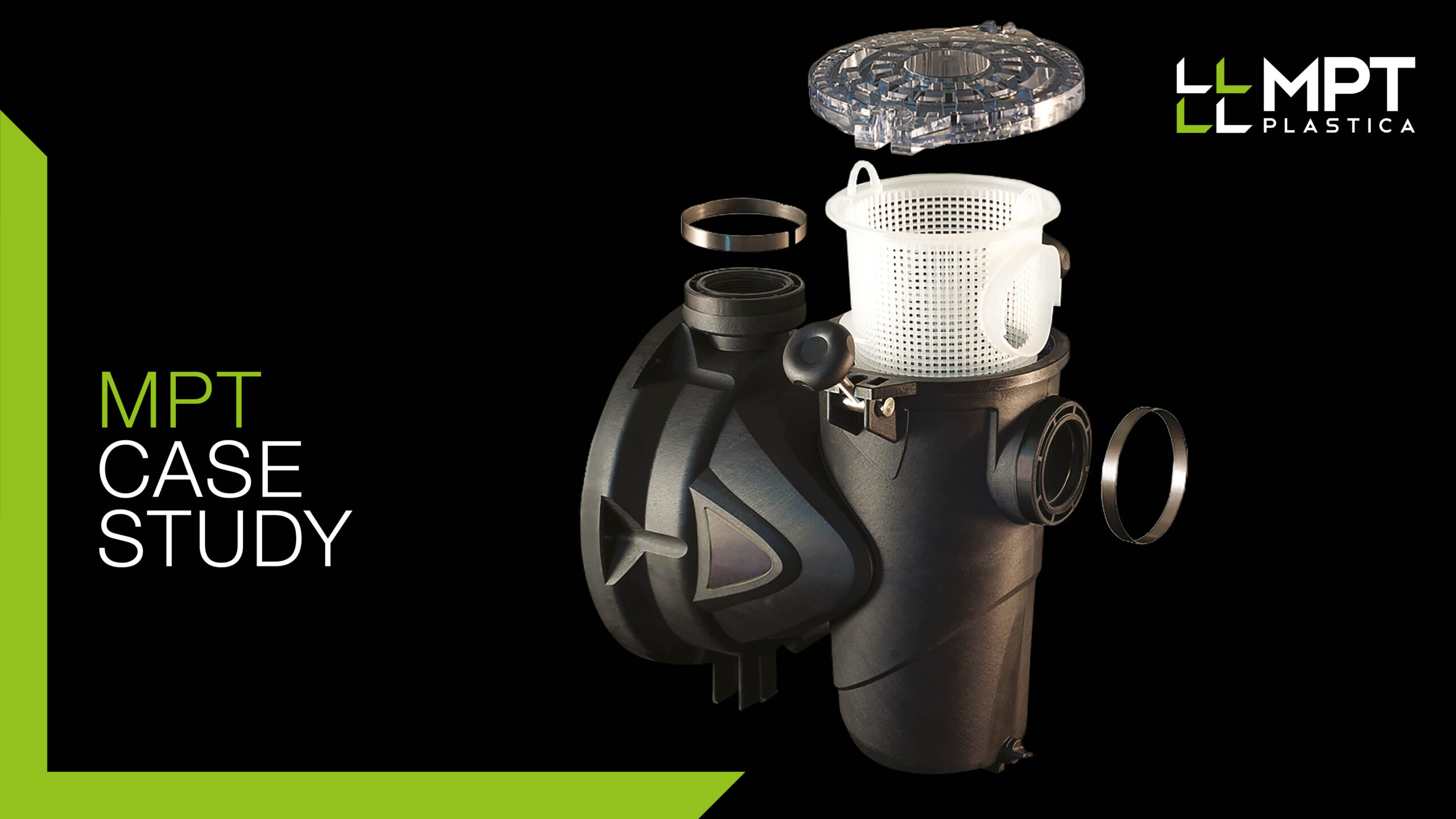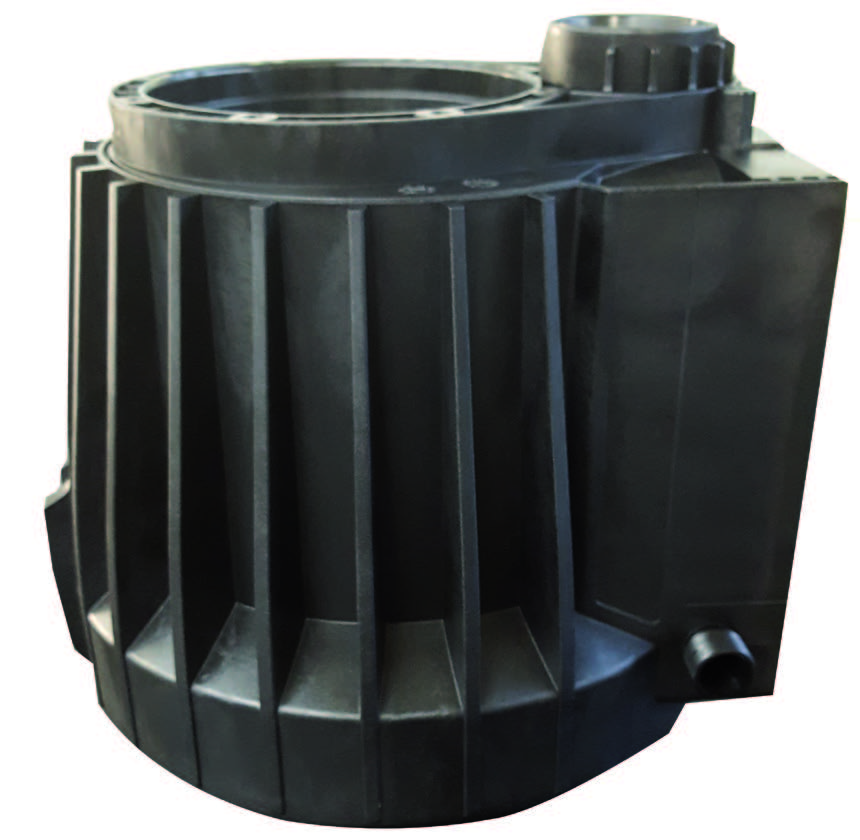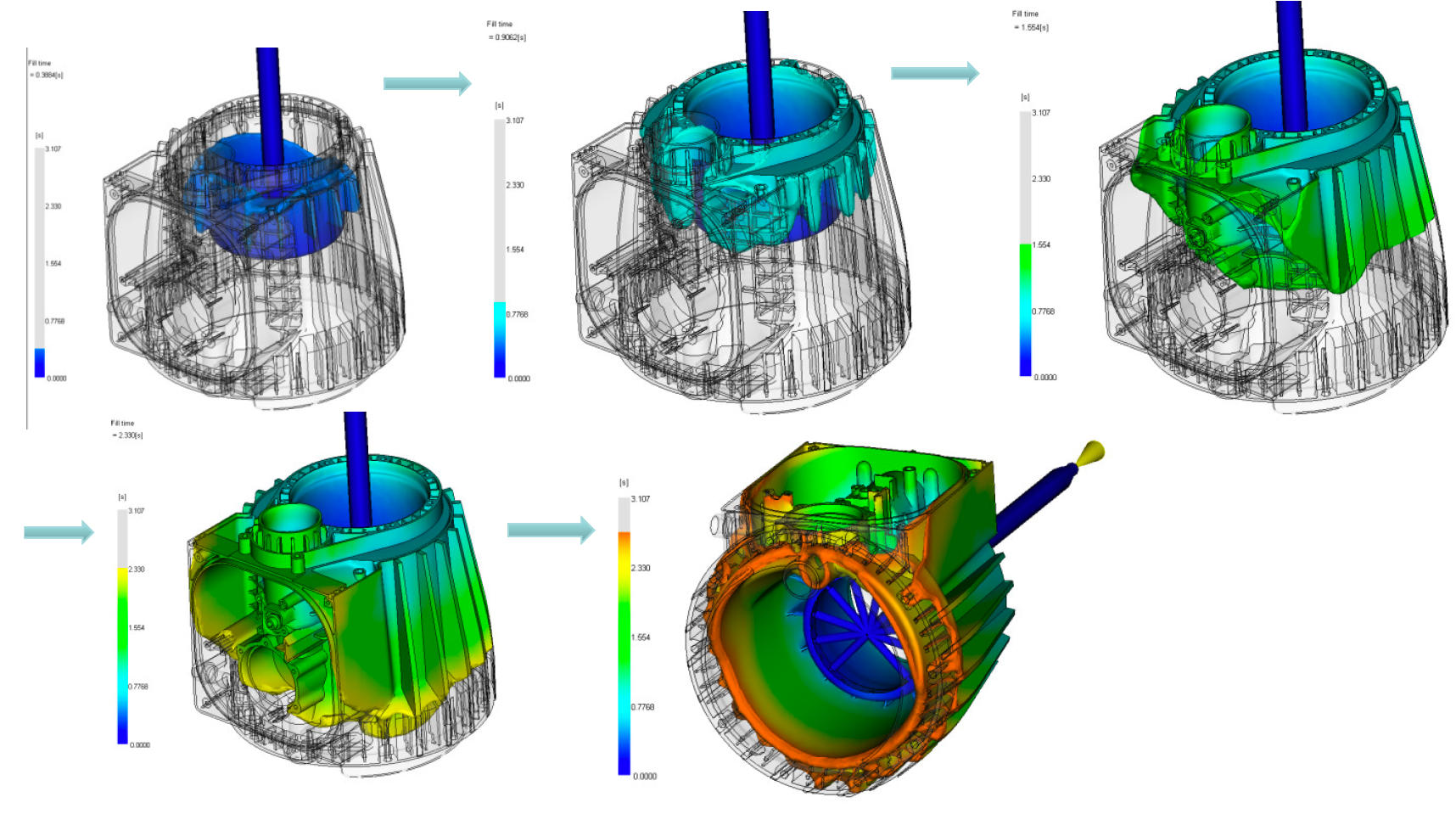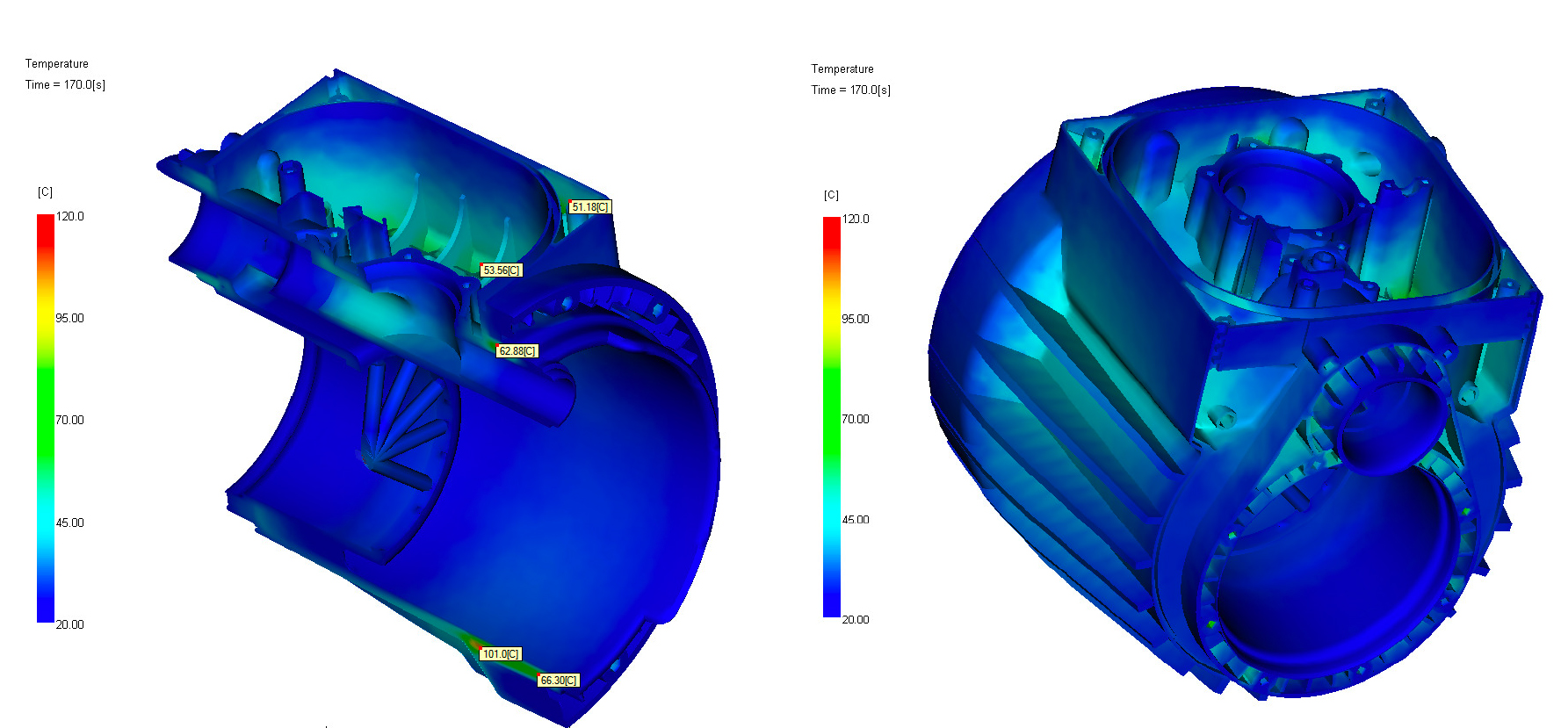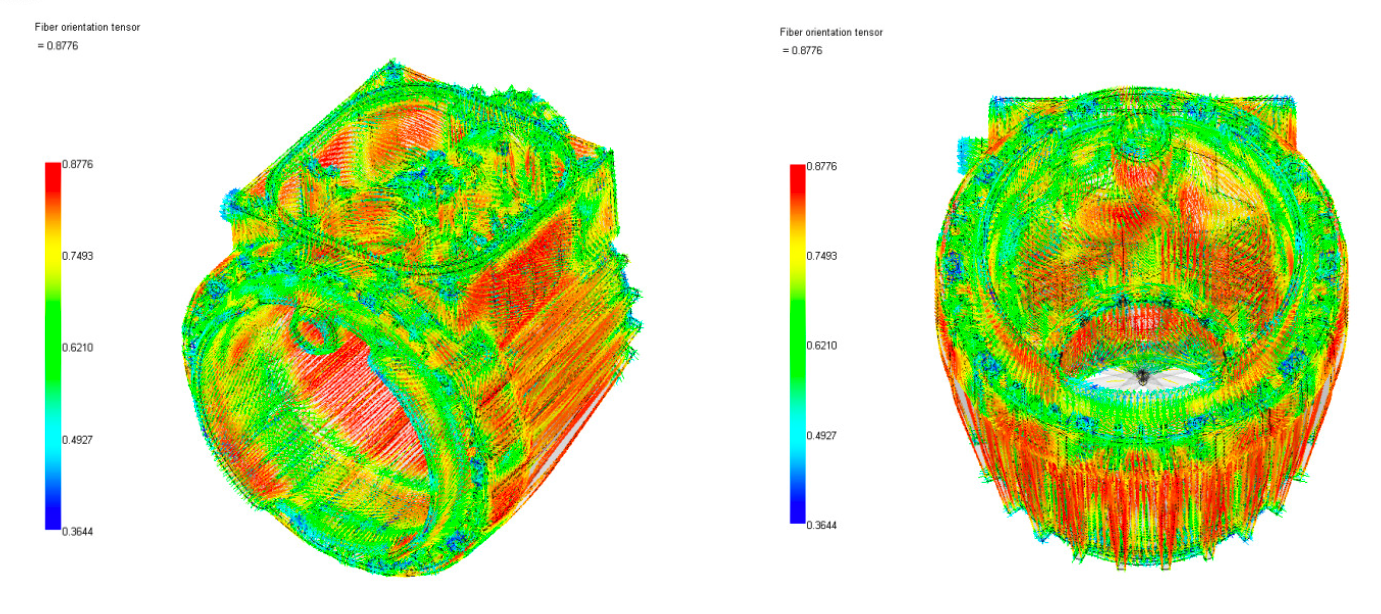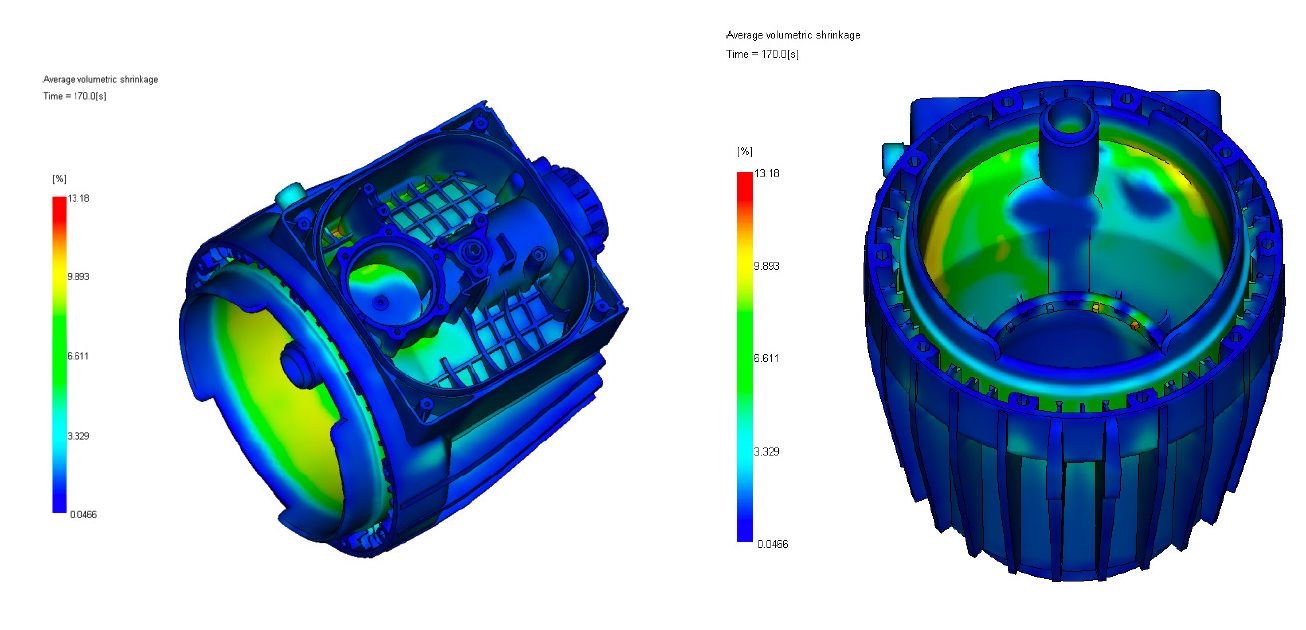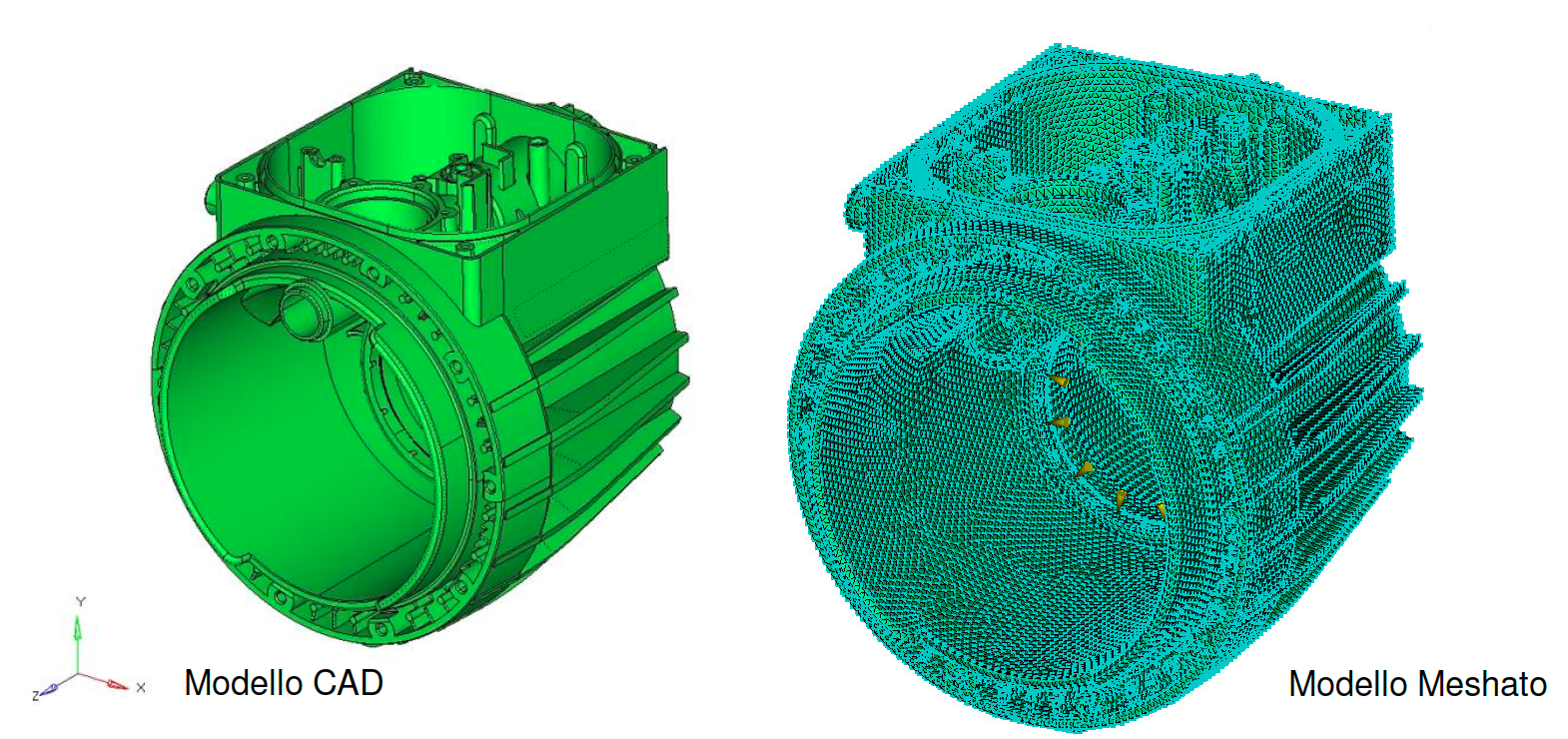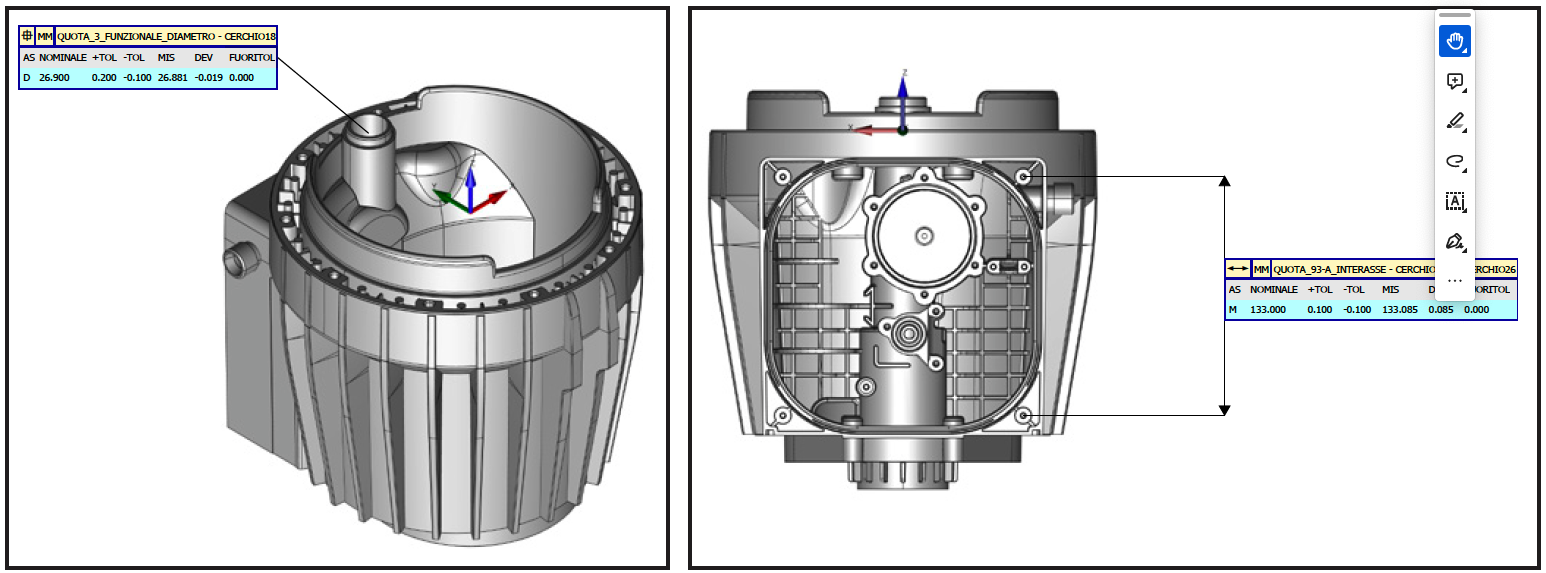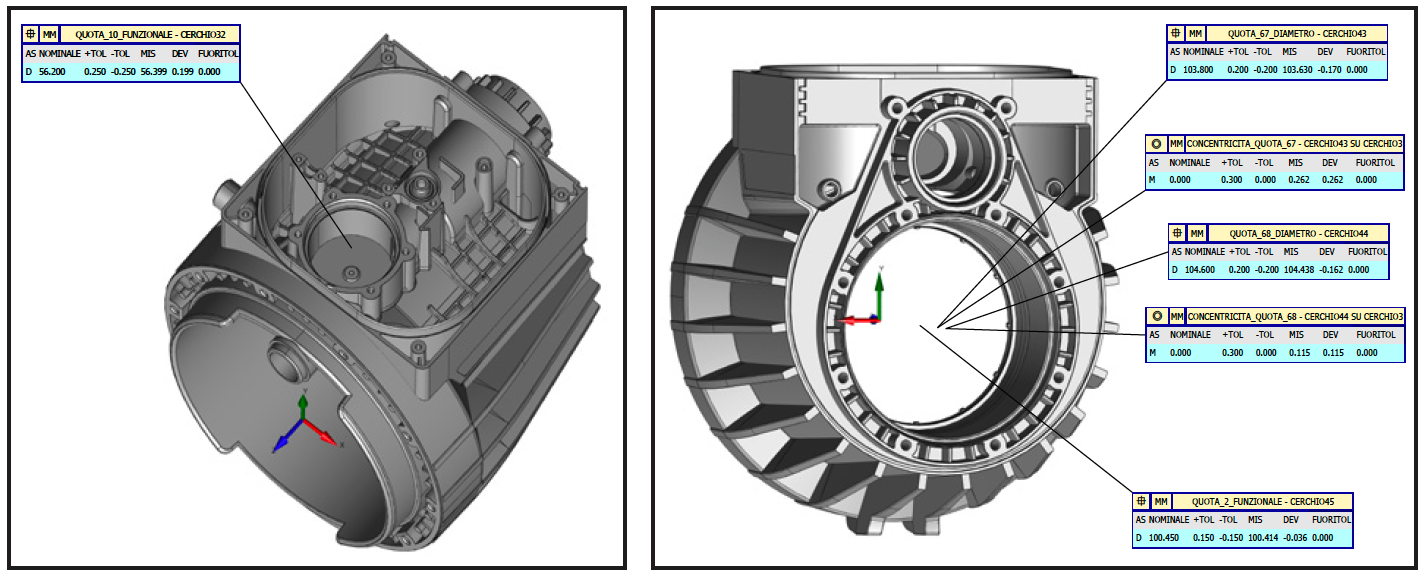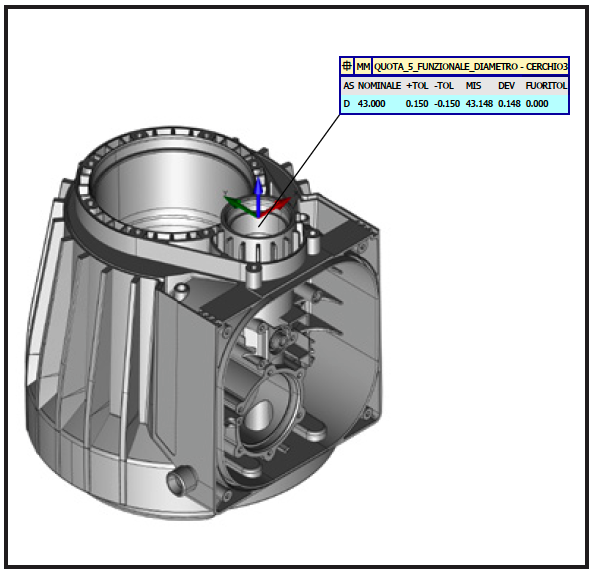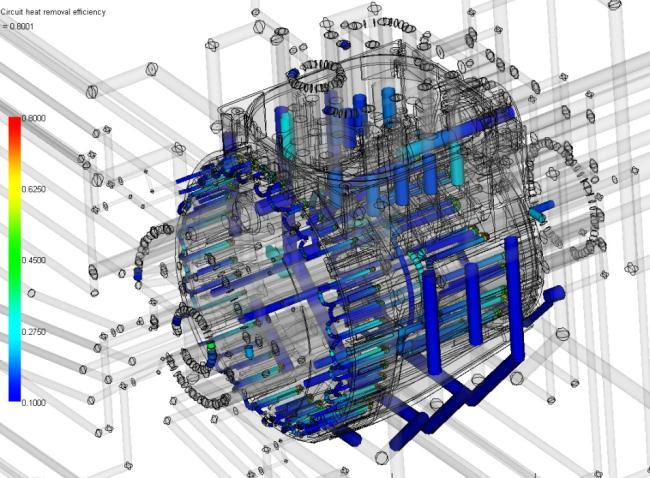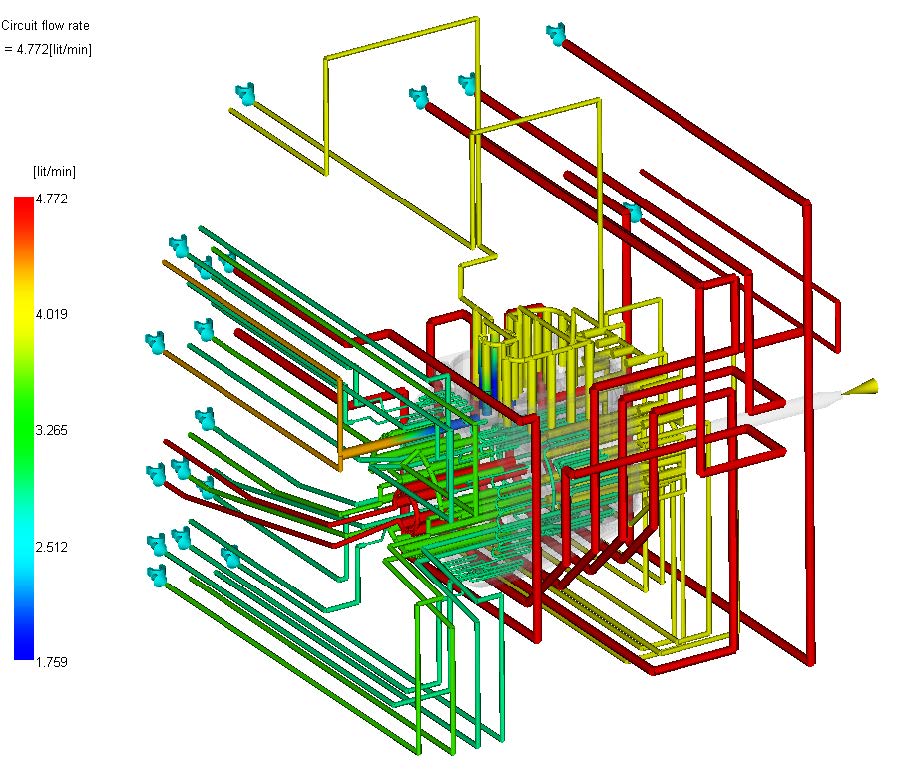SINGLE PUMP BODY
Among the various details that MPT Plastic supplies to the customers, one of the most important is certainly what is called “Pump Body”. It is a technical component weighing about 2 kg, made of polypropylene filled with 30% glass fiber (PP GF 30), which was previously produced using 2 molds in parallel, to cope with the required numbers.
After some delivered supplies, MPT Plastic had found and highlighted some critical issues in these 2 separate pieces of equipment that would be solved by redesigning the production process through the use of only 1 mold, able to guarantee the same daily production capacity.
Despite some initial doubts, their technicians have relied on the consolidated expertise that MPT has acquired operating in various product sectors and adopting different molding technologies.
Thus began the codesign phase during which the two technical teams collaborated to optimize the geometries of the “Pump Body” through an interchange of FEM analysis – to verify the sustainability of the changes – and mold flow analysis – to verify that the desired cycle time could be reached, without this being at the expense of compliance with the required tolerances.
The result led to some changes in the geometry of the technical component to make it feasible with a single mold.
- Better standardization of material distribution
- Lighten masses of superfluous material in certain areas.
